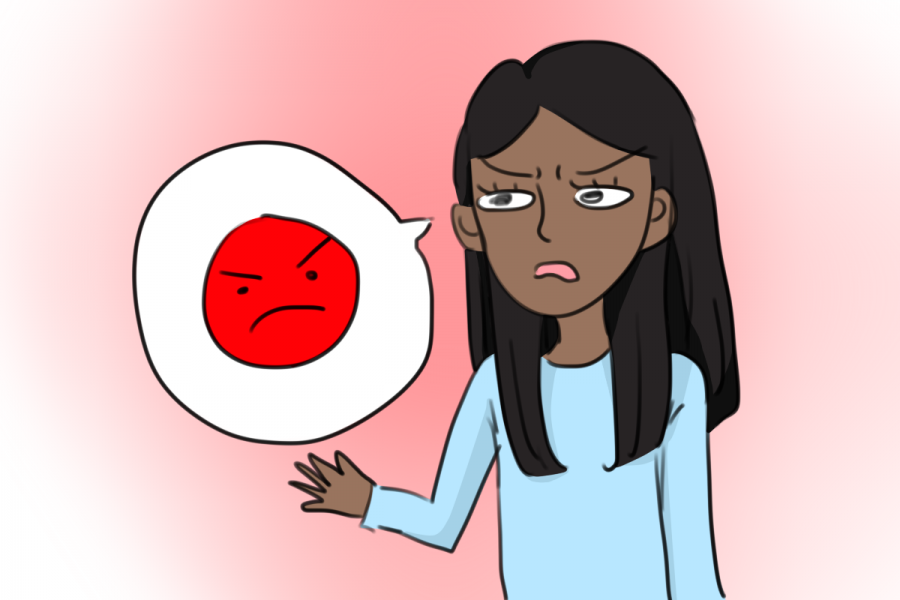Parents: teach girls to get angry
April 6, 2019
Most parents teach their daughters the same values: be polite, kind and patient. But I wasn’t raised that way. My parents encouraged me to be demanding and to get angry. More importantly, they taught me the right way to channel these emotions.
For girls, anger is often dismissed as catty behavior, bossiness or a symptom of “menstrual issues.” But anger is important. It pushes girls to advocate for themselves, something necessary in a man’s world. Without anger and assertiveness, “kind” girls can easily be taken advantage of by their peers.
When I was four, I ran out of a birthday party because the birthday boy called me “short.” While my parents told me I responded poorly, they also acknowledged my anger instead of punishing me. Since then, I’ve learned to channel my anger toward standing up for myself instead of running away.
The stigma surrounding female anger is visible early on; preschool students already have the impression that it’s okay for boys to get angry but not girls, according to a 2018 Washington Post article. It’s up to parents to tackle this double standard early so their children know it’s acceptable to express anger.
The anger double standard continues to hurt women in the workplace. Learning at an early age that anger is not a valid emotion translates into a lack of assertiveness in children. Although women are now asking for raises at the same rates as men, they are still receiving fewer raises, according to Harvard Business Review. This is because women aren’t assertive enough in raise negotiations. Parents encouraging women to express anger isn’t merely a formality or morally the right thing to do; assertiveness can actually lead towards gender equality by encouraging women to self-advocate for the things they deserve.
During my freshman year on the debate team, a judge commented on my ballot that my dress was too “business-like.” I was enraged that the judge commented on my dress rather than my speech, something that my male counterparts would never have had to face. Instead of suppressing my anger or letting the comment take away my interest in debate, I contacted the judge to let him know that he was wrong. I used my anger to stand up for what I thought was right.
Women also use anger to voice their opinions and effect real change. The #Metoo movement is fueled by angry women tired of being told to be complacent and silent. The Women’s March Jan. 19 was filled with angry women fed up with inequality, taking on the streets of Washington D.C.
My parents telling me that I was right to be angry with that boy at the birthday party was one of the most important lessons they’ve taught me. In the years since, my comfort with expressing anger has helped me stand up for myself and fight for what I believe in. If it’s equality that we’re after for women, that requires giving them equal opportunity to be angry, too.











